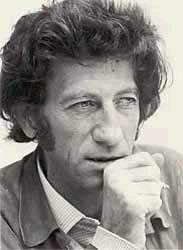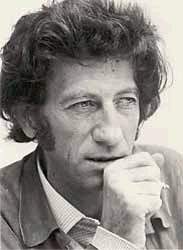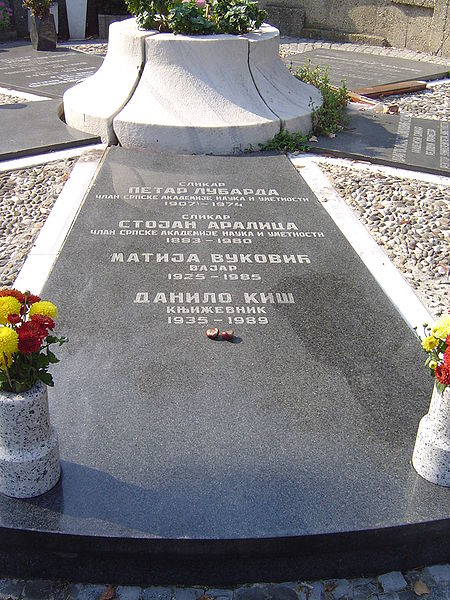Author. He was considered a Serbian writer who had a Montenegrin mother and a Hungarian Jewish father. He had an unstable childhood with a father who was often hospitalized. His mother had him baptized into the Orthodox faith at age four. During World War II, his father and other members of his family were persecuted by Nazis for at least two years before being deported to Auschwitz Concentration camp in 1944 to be killed. Memories of this time can be found in the characters in his writings. After World War II, he studied at the University of Belgrade, graduating in 1958 with the first degree to be issued in comparative literature studies. He continued with two years of postgraduate work. He spent much of the rest of his life in France, becoming a lecturer at the University of Strasbourg until 1973. Many of his works concentrate on wartime persecution of "small," innocent people, although not exclusively the Jewish. His fiction has a distinctive view of the bizarre and fantastic components of everyday reality. Among his works are a look at the Holocaust from a child's viewpoint, "Garden, Ashes" in 1965; "Hourglass" in 1972; a collection of seven short stories dealing with the victims of Communism, "A Tomb for Boris Davidovich" in 1976; and a collection of nine short stories about the mentally ill, "Encyclopedia of the Dead" in 1983, which received international recognition after being translated into several languages. Drawing substantial attention from the public, he was taken to court by critics with claims of plagiarizing "A Tomb for Boris Davidovich," but the case was eventually dismissed in 1979. In the 1980s, his stories appeared in the magazine "The New Yorker". He translated several French authors' works into Serbo-Croatian. He was a chain smoker. A month after being diagnosed, he died from the complications of metastatic lung cancer. He was married and divorced and had no children. After his death, a volume of his essays was published. In honor of him, Danilo Kiš's image was printed on a 2010 Serbia stamp.
Author. He was considered a Serbian writer who had a Montenegrin mother and a Hungarian Jewish father. He had an unstable childhood with a father who was often hospitalized. His mother had him baptized into the Orthodox faith at age four. During World War II, his father and other members of his family were persecuted by Nazis for at least two years before being deported to Auschwitz Concentration camp in 1944 to be killed. Memories of this time can be found in the characters in his writings. After World War II, he studied at the University of Belgrade, graduating in 1958 with the first degree to be issued in comparative literature studies. He continued with two years of postgraduate work. He spent much of the rest of his life in France, becoming a lecturer at the University of Strasbourg until 1973. Many of his works concentrate on wartime persecution of "small," innocent people, although not exclusively the Jewish. His fiction has a distinctive view of the bizarre and fantastic components of everyday reality. Among his works are a look at the Holocaust from a child's viewpoint, "Garden, Ashes" in 1965; "Hourglass" in 1972; a collection of seven short stories dealing with the victims of Communism, "A Tomb for Boris Davidovich" in 1976; and a collection of nine short stories about the mentally ill, "Encyclopedia of the Dead" in 1983, which received international recognition after being translated into several languages. Drawing substantial attention from the public, he was taken to court by critics with claims of plagiarizing "A Tomb for Boris Davidovich," but the case was eventually dismissed in 1979. In the 1980s, his stories appeared in the magazine "The New Yorker". He translated several French authors' works into Serbo-Croatian. He was a chain smoker. A month after being diagnosed, he died from the complications of metastatic lung cancer. He was married and divorced and had no children. After his death, a volume of his essays was published. In honor of him, Danilo Kiš's image was printed on a 2010 Serbia stamp.
Bio by: Linda Davis
Advertisement



